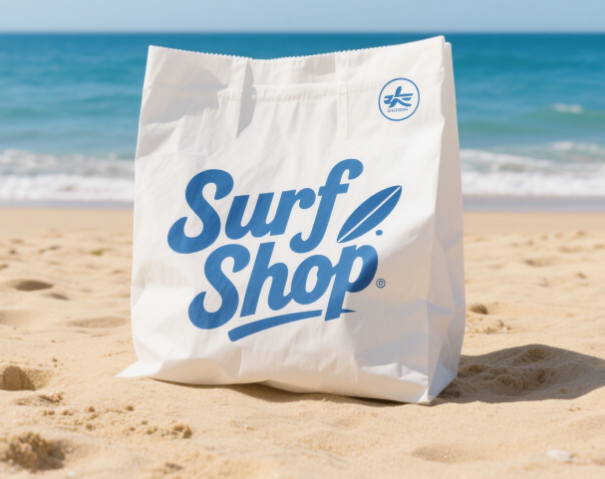التأثير المتزايد لحلول التعبئة والتغليف المستدامة
في عالم اليوم الذي يركز على البيئة، برزت أكياس التغليف الصديقة للبيئة كحل حيوي لمواجهة أزمة النفايات المتزايدة. تمثل هذه الحلول الابتكارية تحولاً كبيراً في الطريقة التي يتعامل بها الشركات والمستهلكون مع تغليف المنتجات، حيث تقدم توازناً مثالياً بين الوظائف والمسؤولية البيئية. ومع استمرار ارتفاع الوعي العالمي بالقضايا البيئية، أصبح اعتماد هذه البدائل المستدامة أكثر من مجرد اتجاه رائج – بل أصبح ضرورة لمستقبل كوكبنا.
إن تحويل صناعة التغليف من خلال أكياس التغليف الصديقة للبيئة يعيد تشكيل سلوك المستهلك والمسؤولية المؤسسية. لا تحل هذه الحلول المستدامة القضايا البيئية الفورية فحسب، بل توفر أيضاً فوائد طويلة الأمد للشركات والمجتمعات على حد سواء. من تقليل البصمة الكربونية إلى تعزيز سمعة العلامة التجارية، تمتد مزايا اختيار التغليف الصديق للبيئة إلى ما هو أبعد من تقليل النفايات.
الابتكار في المواد المستدامة للتغليف
المكونات القابلة للتحلل وتأثيرها البيئي
لقد تطورت العلوم الكامنة وراء أكياس التغليف الصديقة للبيئة بشكل كبير، حيث تم دمج مواد متطورة تتحلل بشكل طبيعي دون ترك بقايا ضارة. توفر المواد القابلة للتحلل الحديثة مثل حمض البوليمر اللاكتيكي (PLA) المشتق من مصادر متجددة مثل نشا الذرة متانة ملحوظة مع ضمان تأثير بيئي ضئيل. تتحلل هذه المواد خلال بضعة أشهر بدلاً من قرون، مما يوفر حلاً عملياً لمشكلة النفايات البلاستيكية التقليدية.
أدى البحث المتقدم إلى تطوير خيارات أكثر تطوراً من المواد القابلة للتحلل، بما في ذلك المواد المحسنة بإنزيمات تسرع عملية التحلل. تضمن هذه الابتكارات أن تحتفظ أكياس التغليف الصديقة للبيئة بكامل قوتها الهيكلية أثناء الاستخدام لكنها تتحلل بكفاءة بعد التخلص منها.
المواد القابلة لإعادة التدوير والاقتصاد الدائري
تلعب المواد القابلة لإعادة التدوير دوراً محورياً في تصميم الأكياس التغليفية الصديقة للبيئة. تسمح البوليمرات الراقية القابلة لإعادة التدوير والمواد القائمة على الورق بدورات حياة متعددة، مما يقلل من الطلب على الموارد الأولية. ويدعم دمج هذه المواد في حلول التغليف نموذج الاقتصاد الدائري، حيث يُقلل من النفايات من خلال إعادة الاستخدام والاستدامة المستمرة.
لقد شهدت الشركات التي تطبّق حلول التغليف القابلة لإعادة التدوير تحسناً ملحوظاً في مؤشرات الاستدامة الخاصة بها، مع الحفاظ على معايير حماية المنتج. أصبح استخدام الأكياس التغليفية الصديقة للبيئة المصنوعة من مواد قابلة لإعادة التدوير ركيزة أساسية في المبادرات الاستدلالية للشركات.
المنافع الاقتصادية للتغليف الصديق للبيئة
الكفاءة من خلال الممارسات المستدامة
على الرغم من أن الاستثمار الأولي في أكياس التغليف الصديقة للبيئة قد يبدو أعلى في البداية، إلا أن الفوائد الاقتصادية على المدى الطويل تكون كبيرة. غالبًا ما تشهد الشركات التي تتبنى هذه الحلول تقليلًا في تكاليف الشحن بسبب خفة المواد المستخدمة، وانخفاض رسوم إدارة النفايات، ومزايا ضريبية محتملة ناتجة عن الامتثال البيئي. كما أن تحسين تصميم التغليف يؤدي إلى تخزين ونقل أكثر كفاءة، مما يحقق وفورات كبيرة في التكاليف على طول سلسلة الإمداد.
وبالإضافة إلى ذلك، فإن تنفيذ أكياس التغليف الصديقة للبيئة يُعدّ حافزًا لتحسين العمليات، مما يؤدي إلى تبسيط الإجراءات وتقليل هدر المواد. وتساهم هذه الكفاءات في تعزيز الأرباح بينما تدعم الأهداف البيئية.
التمايز في السوق وقيمة العلامة التجارية
تحصل الشركات التي تستخدم أكياس تغليف صديقة للبيئة على ميزة تنافسية في السوق الواعي بيئيًا في الوقت الحالي. ولقد خلق تفضيل المستهلكين للمنتجات المستدامة فرصًا جديدة للعلامات التجارية لتمييز نفسها من خلال خيارات تغليف مسؤولة، وغالبًا ما تتحول هذه الميزة الاستراتيجية إلى حصة سوقية أكبر وولاء أقوى من العملاء.
كما يعزز اعتماد حلول التغليف المستدامة سمعة العلامة التجارية ويبني الثقة مع المستهلكين الواعين للبيئة. وغالبًا ما تشهد الشركات التي تظهر التزامًا حقيقيًا بالاستدامة من خلال خيارات التغليف الخاصة بها تحسنًا في انخراط العملاء والارتباط الإيجابي بالعلامة التجارية.

الأداء والوظائف
معايير المتانة والحماية
تتميز أكياس التغليف الصديقة للبيئة الحديثة بأنها تلبي أو تفوق معايير أداء مواد التغليف التقليدية. تضمن تقنيات التصنيع المتقدمة أن توفر هذه الحلول المستدامة حماية ممتازة ضد الرطوبة والتغيرات الحرارية والإجهاد البدني. وقد تحسنت متانة المواد الصديقة للبيئة بشكل ملحوظ، مما يوفر حماية موثوقة للمنتجات طوال سلسلة الإمداد.
سمحت التطورات التكنولوجية الحديثة بتطوير أكياس تغليف صديقة للبيئة تحافظ على نضارة المنتجات وسلامتها مع تقليل الأثر البيئي. تُظهر هذه الابتكارات أن الاستدامة والأداء يمكن أن يتعايشا بشكل فعال في حلول التغليف الحديثة.
التنوع في التطبيق
تُعدّ أكياس التغليف الصديقة للبيئة متعددة الاستخدامات، حيث تمتد عبر مختلف الصناعات والتطبيقات. من تغليف الأغذية إلى الأكياس الخاصة بالتجزئة ومواد الشحن الصناعية، تتوفر حلول مستدامة لتلبية احتياجات متنوعة. وتحقيقاً لهذه المرونة، يمكن للشركات الحفاظ على متطلبات تشغيلها مع الانتقال إلى خيارات تغليف أكثر مسؤولية بيئية.
إن المرونة في التصميم وخيارات التخصيص تسمح للشركات بالحفاظ على هويتها التجارية مع اعتماد تغليف مستدام. سواء كان المنتج فاخراً أو مخصصاً للاستخدام اليومي، فإنه يمكن تخصيص أكياس التغليف الصديقة للبيئة لتلبية متطلبات جمالية ووظيفية محددة.
اتجاهات المستقبل والابتكارات
تكامل التغليف الذكي
يشمل مستقبل أكياس التعبئة والتغليف الصديقة للبيئة دمج تقنيات ذكية. تُطور ابتكارات مثل أجهزة استشعار قابلة للتحلل الحيوي ومواد ذكية يمكنها مراقبة نضارة المنتجات أو الإشارة إلى الظروف البيئية. ستعزز هذه التطورات بشكل أكبر الوظائف والقيمة المقدمة لحلول التعبئة المستدامة.
تخلق الجمع بين المسؤولية البيئية والتطور التكنولوجي إمكانيات جديدة للتغليف، بحيث لا يحمي المنتجات فحسب، بل يوفر أيضًا بيانات قيمة وتجارب مستخدم محسنة.
المواد والتكنولوجيات الناشئة
تتواصل الأبحاث حول مواد جديدة لتوسيع إمكانيات أكياس التعبئة والتغليف الصديقة للبيئة. من البوليمرات المستخلصة من المحيط إلى المواد المستندة إلى النفايات الزراعية، تُطور حلول مبتكرة باستمرار. تعد هذه التقنيات الناشئة بخيارات تعبئة أكثر استدامة وفعالية في المستقبل.
إن التطور المستمر في العمليات والمواد التصنيعية الجديدة يضمن أن تواصل أكياس التغليف الصديقة للبيئة التطور والتحسن، مما يوفر حلولًا أفضل لكل من الشركات والمستهلكين على حد سواء.
الأسئلة الشائعة
كم من الوقت تستغرق أكياس التغليف الصديقة للبيئة حتى تتحلل؟
يختلف وقت التحلل اعتمادًا على المواد المستخدمة تحديدًا، لكن معظم أكياس التغليف الصديقة للبيئة تتحلل خلال 3 إلى 6 أشهر تحت ظروف مناسبة، مقارنة ب centos السنين التي تتطلبها أكياس البلاستيك التقليدية.
هل أكياس التغليف الصديقة للبيئة قوية بنفس درجة أكياس البلاستيك التقليدية؟
نعم، صُمّمت مواد التغليف الصديقة للبيئة الحديثة لتكون مساوية أو أفضل من حيث القوة والمتانة مقارنة بأكياس البلاستيك التقليدية، مع الحفاظ على مزاياها البيئية.
ما الذي يجعل أكياس التعبئة والتغليف صديقة للبيئة؟
تُصنع أكياس التغليف الصديقة للبيئة من مواد قابلة للتحلل أو إعادة التدوير أو متجددة، ولها تأثير بيئي ضئيل. صُمّمت لتتحلل بشكل طبيعي دون ترك بقايا ضارة، وغالبًا ما تحتاج إلى طاقة أقل في إنتاجها مقارنةً بالتغليف التقليدي.




